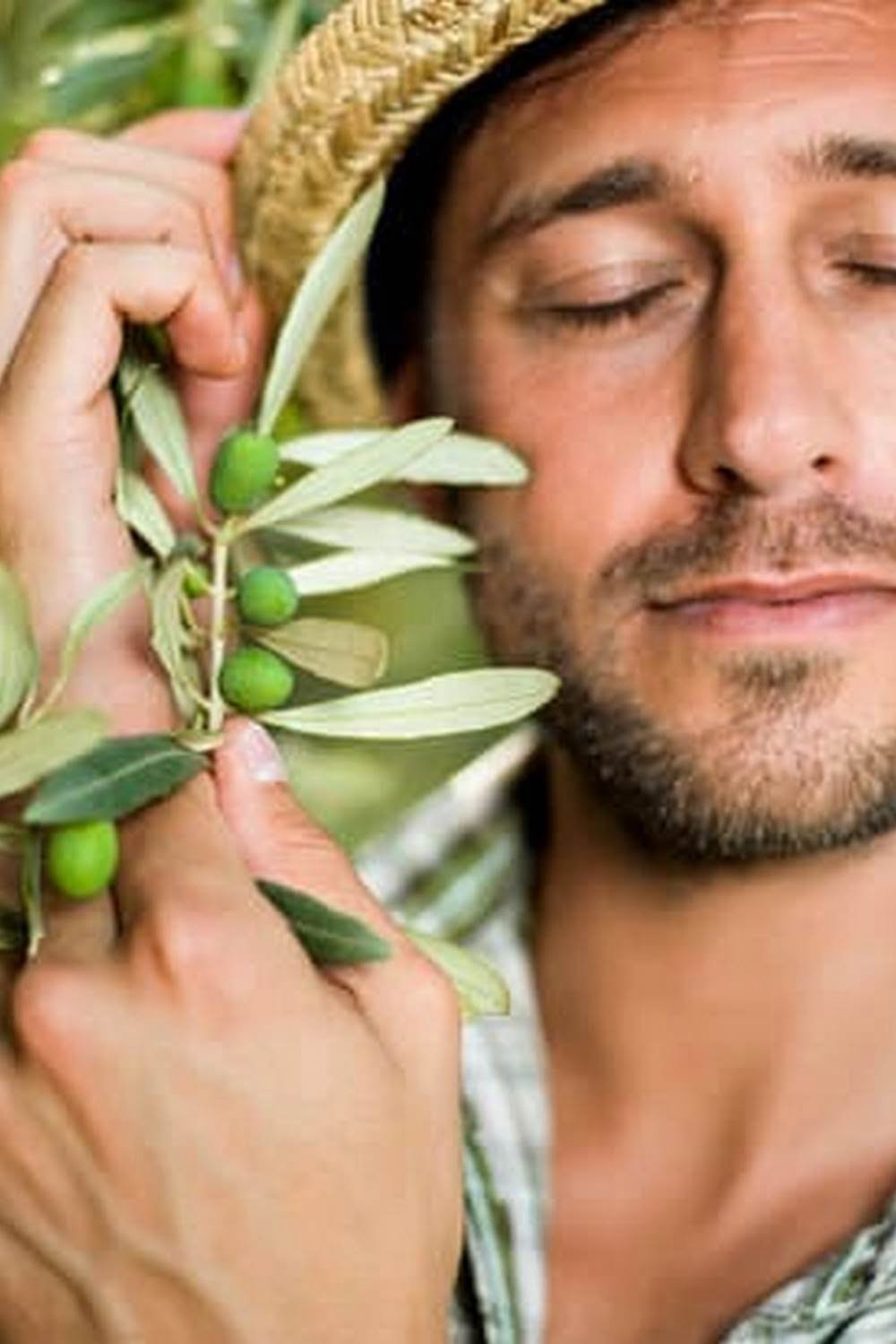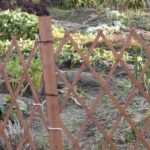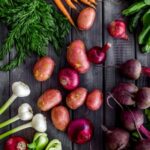Vegetable gardening enthusiasts in the Carolina region are in for a treat as they delve into the vibrant world of growing their own produce. Whether you’re a seasoned gardener or just starting out, learning about the best vegetables to grow, essential tools and equipment, and expert tips for success is key to a fruitful harvest.
In this article, we will explore everything you need to know about vegetable gardening in Carolina, from the top vegetable varieties that thrive in this climate to seasonal planting guides and sustainable practices. So grab your gardening gloves and get ready to cultivate your very own Carolina garden paradise.
When it comes to selecting the right vegetables for your Carolina garden, understanding which varieties flourish in this specific region is crucial. From juicy tomatoes to crisp cucumbers and hearty greens, there are numerous options to choose from that will thrive in the Carolina climate. By focusing on these top picks, you can ensure a bountiful harvest year-round while maximizing the potential of your garden space.
In addition to choosing the best vegetables for your Carolina garden, having the right tools and equipment is essential for successful cultivation. From sturdy shovels and reliable watering cans to organic fertilizers and pest control solutions, equipping yourself with the necessary gear will make all the difference in maintaining a healthy and thriving garden.
Stay tuned as we delve into expert advice on soil preparation, watering techniques, pest control strategies, and much more to help you achieve optimal results with your Carolina vegetable garden.
Best Vegetables to Grow in a Carolina Garden
When it comes to vegetable gardening in the Carolina region, choosing the right vegetables can make all the difference. With a climate that can range from hot and humid summers to mild winters, it’s essential to select varieties that can thrive in these conditions. Here are some of the best vegetables to grow in a Carolina garden:
- Tomatoes: One of the most popular choices for Carolina gardeners, tomatoes love the warm weather and ample sunlight typically found in the region. Whether you prefer cherry tomatoes or beefsteak varieties, there is a type of tomato suitable for every preference.
- Zucchini: Known for its prolific growth, zucchini is a great choice for Carolina gardens. This versatile vegetable can be used in a variety of dishes and is relatively easy to grow, making it ideal for beginner gardeners.
- Collard Greens: A staple in Southern cuisine, collard greens are well-suited to the Carolina climate. They thrive in cooler temperatures and can withstand both frost and heat, making them a reliable choice for your garden.
In addition to these vegetables, other excellent options for Carolina gardeners include peppers, cucumbers, sweet potatoes, and beans. By selecting vegetables that are well-adapted to the unique climate of the Carolinas, you can increase your chances of a successful harvest.
Essential Tools and Equipment for Carolina Gardeners
When it comes to vegetable gardening in the Carolina region, having the right tools and equipment can make a significant difference in the success of your garden. Whether you are a seasoned gardener or just starting, having the essential tools on hand can help you cultivate a bountiful harvest. From soil preparation to plant maintenance, here is a guide to the must-have tools for successful vegetable gardening in the Carolina region.
Soil Preparation
One of the first steps in setting up your Carolina vegetable garden is soil preparation. A sturdy shovel or garden fork is essential for turning and loosening the soil, ensuring proper aeration and drainage for healthy plant growth.
A hoe or rake can also come in handy for leveling the soil surface and removing weeds before planting. Additionally, a soil testing kit is crucial for determining the pH levels and nutrient content of your soil, helping you adjust it accordingly for optimal plant growth.
Planting and Maintenance
For planting seeds or transplants, quality garden gloves are necessary to protect your hands while working in the soil. A watering can or hose with an adjustable nozzle is essential for providing adequate moisture to your plants, especially during hot Carolina summers.
Pruning shears or scissors are useful for trimming plants as needed, while a hand trowel makes planting small seedlings a breeze. To protect your crops from pests and diseases, consider investing in row covers, trellises, or other protective structures.
Storage and Organization
Proper storage and organization of your gardening tools can help keep them in good condition and easily accessible when needed. Consider investing in a durable toolshed or storage box to store your gardening tools safely. Having a wheelbarrow or garden cart can also be beneficial for transporting heavy bags of soil, compost, or mulch around your garden. Don’t forget to keep your tools clean after each use to prevent rust and prolong their lifespan.
Tips for Successful Vegetable Gardening in the Carolina Region
Soil Preparation
One of the key factors in successful vegetable gardening in the Carolina region is proper soil preparation. Before planting, it is essential to test the soil to determine its pH levels and nutrient content. Most vegetables thrive in well-draining, fertile soil with a slightly acidic pH level. To improve soil quality, consider adding organic matter such as compost or aged manure. This will not only provide essential nutrients for your plants but also help with moisture retention.
Watering Techniques
Proper watering is crucial for the health and growth of your vegetables in the Carolina garden. During hot summer months, it is important to water deeply and consistently to ensure that roots receive an adequate amount of moisture. Consider installing a drip irrigation system or soaker hoses to deliver water directly to the roots while minimizing evaporation.
Mulching around plants can also help retain moisture and reduce weed growth. However, be cautious not to overwater as this can lead to root rot and other plant diseases.
Pest Control Strategies
In the Carolina region, pests can pose a significant threat to your vegetable garden. Utilizing integrated pest management techniques can help control pests while minimizing the use of chemical pesticides. Encouraging beneficial insects like ladybugs and lacewings can aid in controlling common garden pests such as aphids and caterpillars.
Regularly inspecting plants for signs of pest damage and promptly addressing any issues can help prevent infestations from spreading. Additionally, companion planting certain herbs like basil or marigolds can naturally repel pests and attract beneficial insects.
Seasonal Planting Guide for Carolina Vegetable Gardeners
Carolina gardeners are fortunate to have a long growing season that allows for a variety of vegetables to thrive throughout the year. By following a seasonal planting guide, you can maximize your harvest and enjoy fresh produce from your garden all year round. Here is a breakdown of the planting schedule for spring, summer, fall, and winter crops in the Carolina region:
- Spring: Spring is an exciting time for vegetable gardeners in Carolina as it marks the beginning of the growing season. During this time, it is ideal to plant cool-season crops such as lettuce, spinach, kale, and peas. These vegetables thrive in the cooler temperatures of spring and can be harvested before the heat of summer sets in.
- Summer: In summer, Carolina gardeners can plant warm-season crops like tomatoes, peppers, cucumbers, squash, and beans. These vegetables love the heat and sunshine of summer and will produce abundant yields if properly cared for. Be sure to provide sufficient water and mulch around plants to retain moisture.
- Fall: Fall is another great season for vegetable gardening in Carolina. This is the time to plant crops like carrots, beets, radishes, broccoli, and cauliflower. These cool-season vegetables will grow well in the milder temperatures of fall and can often withstand light frosts.
- Winter: Even in winter, Carolina gardeners can continue to grow certain vegetables with proper protection. Consider planting cold-hardy crops such as cabbage, Brussels sprouts, collard greens, and kale. Use row covers or cold frames to keep these plants insulated during colder days.
By following this seasonal planting guide for Carolina vegetable gardeners, you can ensure a bountiful harvest throughout the year. Remember to adjust your planting schedule based on your specific location within the Carolina region and local weather patterns. With proper planning and care, you can enjoy a successful vegetable garden no matter the season.
Carolina Garden Success Stories
One of the most rewarding aspects of vegetable gardening in the Carolina region is the sense of accomplishment that comes from seeing your hard work pay off. Local gardeners have shared their inspiring stories of success, highlighting the joy and satisfaction that comes from growing your own vegetables.
Many Carolina gardeners have found success with a variety of vegetables, including tomatoes, peppers, cucumbers, and squash. These vegetables thrive in the region’s climate and soil conditions, making them popular choices among local gardeners. By carefully selecting the right varieties and following best practices for cultivation, many gardeners have been able to enjoy bountiful harvests year after year.
In addition to the abundance of fresh produce, Carolina gardeners also appreciate the opportunity to connect with nature and experience the therapeutic benefits of gardening. Many local gardeners find solace and relaxation in tending to their vegetable plots, while others enjoy sharing their harvest with friends and neighbors. The sense of community that comes from participating in a shared love for vegetable gardening adds an extra layer of satisfaction to the experience.
Sustainable Practices for Carolina Vegetable Gardening
Sustainable practices play a crucial role in vegetable gardening, especially in the Carolina region where the climate can be challenging at times. One of the best ways to make your vegetable garden more eco-friendly is by practicing water conservation techniques. Consider collecting rainwater in barrels and using it to water your plants instead of relying solely on municipal water sources. This not only reduces your environmental impact but also helps you save on your water bill.
Another sustainable practice for Carolina vegetable gardening is composting. Instead of throwing away kitchen scraps and yard waste, turn them into nutrient-rich compost that can be used to fertilize your garden. Composting not only reduces overall waste sent to landfills but also improves soil health by adding essential nutrients back into the earth. This natural fertilizer can help boost plant growth and increase crop yield without relying on synthetic chemicals.
In addition to water conservation and composting, implementing companion planting techniques can also enhance sustainability in your Carolina vegetable garden. By planting certain vegetables together based on their beneficial relationships, you can naturally deter pests, improve soil quality, and maximize space efficiency. For example, planting carrots with tomatoes can help repel pests that would typically target one or the other crop individually.
| Sustainable Practices | Benefits |
|---|---|
| Water Conservation | Reduces environmental impact & saves on water bill |
| Composting | Reduces waste sent to landfills & improves soil health |
| Companion Planting | Naturally deters pests, improves soil quality & maximizes space efficiency |
Resources for Carolina Vegetable Gardeners
In conclusion, for those looking to delve into the world of vegetable gardening in the Carolina region, there is a wealth of resources and information available to help you on your journey. From expert advice on the best vegetables to grow in Carolina gardens to essential tools and equipment recommendations, Carolina gardeners have access to all they need to succeed. Additionally, the seasonal planting guide offers valuable insights into when to plant specific crops for optimum growth and harvest.
Moreover, hearing inspiring stories from fellow Carolina gardeners who have achieved success in cultivating their own vegetables can provide motivation and valuable tips for newcomers. By following sustainable practices in your vegetable garden, such as composting and water conservation techniques, you can not only reduce your environmental impact but also create a healthy ecosystem for your plants.
Lastly, utilizing the resources available locally, such as nurseries and community gardens, as well as online platforms dedicated to Carolina gardening, can further enhance your experience and knowledge in vegetable gardening. Whether you are a beginner or a seasoned gardener, exploring these resources will undoubtedly enrich your journey as a vegetables carolina gardener.
Frequently Asked Questions
What Vegetables Are Good to Grow in North Carolina?
North Carolina’s climate is well-suited for growing a variety of vegetables. Some good options to consider include tomatoes, cucumbers, bell peppers, squash, zucchini, okra, sweet potatoes, and collard greens. These vegetables thrive in the state’s warm summers and mild winters.
What Vegetables Can a Beginner Gardener Grow?
For beginner gardeners, it’s important to start with easy-to-grow vegetables that require minimal maintenance. Some great options for beginners include radishes, lettuce, green beans, carrots, and cherry tomatoes. These vegetables are relatively low-maintenance and can be grown in containers or small garden plots.
What Is the Easiest Vegetable to Grow in South Carolina?
In South Carolina, one of the easiest vegetables to grow is okra. This heat-loving plant thrives in the state’s hot and humid climate and requires little care once established. Okra plants produce abundant pods that can be harvested throughout the summer months. Other easy-to-grow options in South Carolina include tomatoes, peppers, sweet potatoes, and collard greens.

If you’re looking to get into vegetable gardening, or are just looking for some tips on how to make your current garden better, then you’ve come to the right place! My name is Ethel and I have been gardening for years. In this blog, I’m going to share with you some of my best tips on how to create a successful vegetable garden.





